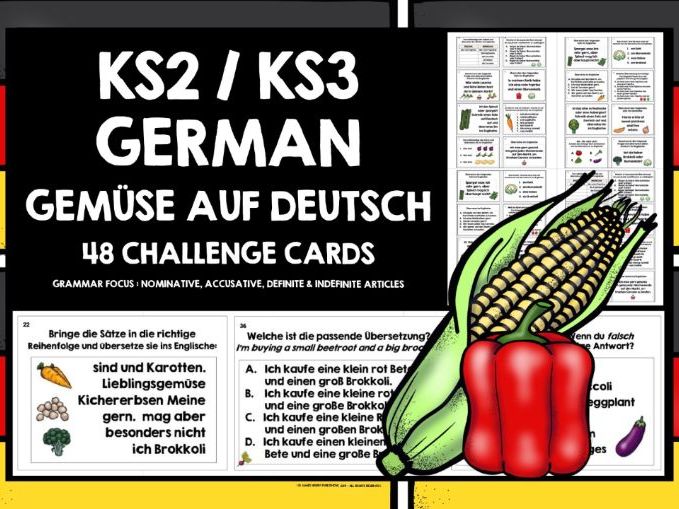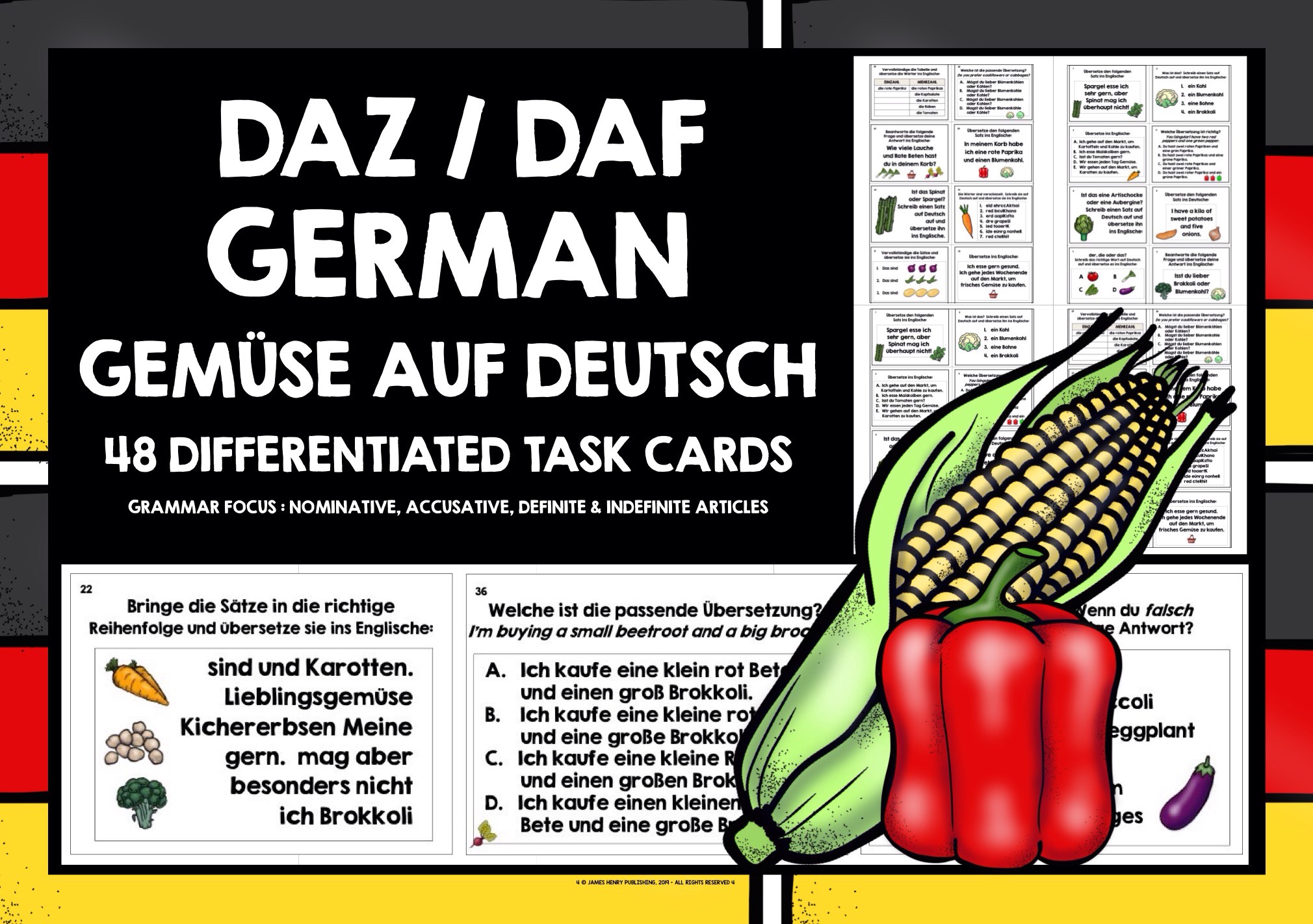


ADVANCED BEGINNER GERMAN VEGETABLES TASK CARDS KS3 GERMAN VEGETABLES CHALLENGE CARDS KS4 GERMAN VEGETABLES CHALLENGE CARDS WITH GRAMMAR FOCUS ON DEFINITE AND INDEFINITE ARTICLES, SINGULAR AND PLURAL
Files are non-editable in a zipped format. This product is copyright, all rights reserved. It is illegal to copy, rewrite, amend, share or distribute it, in whole or in part, outside your own classroom in any way. The license for purchase is a single-use license only. School / departmental licenses are available. Please read the Terms of Use carefully.
Students can embed, reinforce and refresh their knowledge of the focus target language, as well as develop their German language skills in general, independently of the teacher. The questions are differentiated, ranging in complexity and challenge. They have a shared language focus: vegetables in German, within the context of two German cases - nominative and accusative - and German articles, masculine, feminine, definite, indefinite, singular and plural, with some reference to adjectival endings. There is reference to a range of grammatical structures such as um… zu + infinitive, all of which give students opportunity to recognise and identify linguistic patterns, and to develop their German skills more holistically, without explicit instruction. This enables them to understand and use language in practical and communicative contexts, which is a more successful language learning strategy, and more engaging and challenging for students, than straightforward single-unit vocabulary memorisation drills or exercises.
There are some simple translation questions, both German-English and English-German. This helps students understand that translation is not simply a ‘word for word’ exchange from the beginning of their German learning programme.
The set comprises the following non-editable files in a zipped format:
= 48 differentiated question cards
= answer key & answer recording sheet. The recording sheet works well for more formal assessment purposes. Students can use their class workbooks for working and noting their responses in class time.
= alphabetical German-English vegetables list. There are 30 vegetables featured in the questions, though students don’t learn all 30 vegetables at one particular time. It’s useful to include additional language to make the activity more challenging, and to provide students with a broader range of vocabulary to engage with. The list includes gender (masculine or feminine) as well as definite and indefinite article, singular and plural.
The Lively Learning Classroom offers a wide range of German resources, including special offer bundles and freebies.
VIELEN DANK UND VIEL SPAß IN DER DEUTSCHSTUNDE!
Something went wrong, please try again later.
This resource hasn't been reviewed yet
To ensure quality for our reviews, only customers who have purchased this resource can review it
to let us know if it violates our terms and conditions.
Our customer service team will review your report and will be in touch.